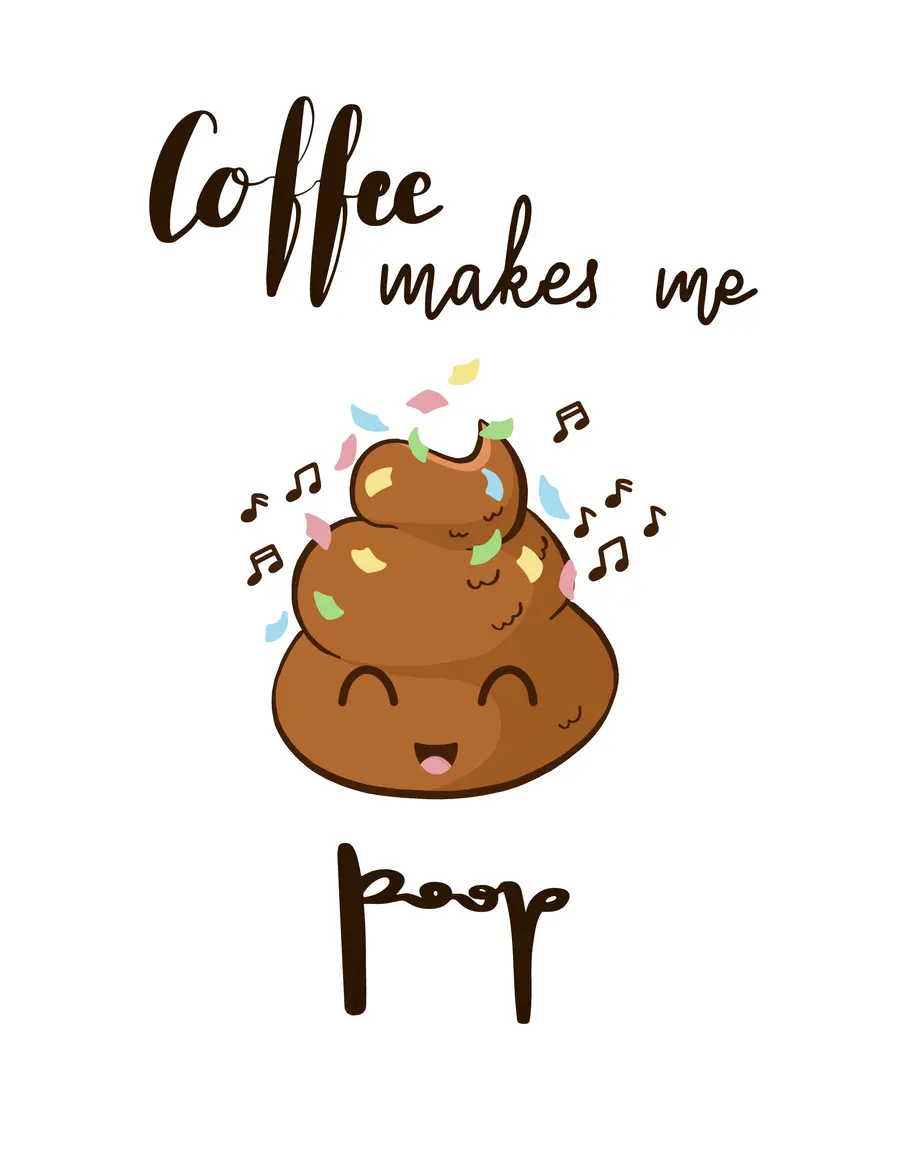Why Coffee Makes You Poop Explained
Coffee's caffeine content can provide an extra energy boost throughout the day. The drink may also cause people to have a bowel movement as a side effect.
Most Respondents In One Survey Reported That Drinking Coffee Increased The Motility Of The Bowels.
What causes many people to poop after drinking coffee? Is coffee effective at stimulating bowel movements? This article discusses the effects coffee can have on the digestive system and other things you may want to consider before drinking coffee.
The Science Behind Coffee and Digestion
Coffee contains several natural compounds, including:
- Caffeine: A stimulant found in over 60 plant species, including tea leaves, kola nuts, cocoa, and coffee.
- Antioxidants: A coffee drink may aid the body in removing oxidants through its chlorogenic acid and melanoidin content.
- Diterpenes: Coffee oil naturally contains cafestol and kahweol diterpenes.
Caffeine has been specifically found to have several effects on the human gastrointestinal system, despite its compounds having different effects on the body.
How Caffeine Affects the Colon and Bowel Movements
The colon is believed to be affected by caffeine in various ways. According to one study, caffeine is 60% more effective than water at stimulating colonic activity in some people.
Studies have found that caffeine can trigger muscular contractions of the anal sphincter, which are needed for successful bowel movements. The same study also found that decaffeinated coffee stimulated colonic motor activity, suggesting that coffee also contains other components that activate our bowels.
In addition to the compounds listed above, coffee contains many other chemicals, some of which are formed during storage and processing. There is some evidence that coffee affects our gastrointestinal system, although the specific compounds that directly impact it are unknown.
Factors That Influence Coffee’s Effect on Digestion
Besides coffee's impact on our colon and more extensive gastrointestinal system, other factors may affect how we go to the bathroom.
Hormonal Fluctuations
Coffee can affect the body's hormones when consumed. Consuming coffee increases gastrin levels, for instance. A significant function of Gastrin is to increase gastric motility and control the stomach's acid release.
Additionally, drinking coffee can increase the speed at which waste moves through the colon by releasing cholecystokinin, a hormone that stimulates digestion.
Milk or Creamer
Those lactose intolerant or sensitive may experience abdominal cramps, bloating, and diarrhoea when they add milk or creamer to their morning coffee.
Temperature
Compared to cold or iced coffee, some people believe drinking hot coffee can help move their bowels. Temperature doesn't significantly impact whether or not bowel movements are triggered.
Acidity
One theory suggests that chlorogenic acid, another antioxidant in coffee, may speed up digestion and colonic activity by helping the stomach digest food more quickly.
More research is needed to support these claims.
Other Health Conditions
Some health conditions may make coffee more likely to trigger bowel movements, including those with:
- Irritable bowel syndrome (IBS)
- Lactose intolerance
Coffee and Digestion: What Affects Your Bowel Movements
| Factor | Effect on Digestion | What to Do |
|---|---|---|
| Caffeine | Stimulates colon contractions | Limit intake to <400mg daily |
| Milk or creamer | Can cause cramps or diarrhoea in lactose intolerance | Use lactose-free alternatives |
| Coffee temperature | Minimal impact | Choose personal preference |
| Acidity | May speed up digestion in some | Try low-acid coffee |
| IBS or IBD | Can worsen bowel urgency | Seek doctor’s advice |
How Much Coffee It Takes to Stimulate a Bowel Movement
The effects of drinking coffee will vary from person to person.
Individuals who find coffee an effective colonic stimulant will require different amounts of coffee to cause bowel movements.
The type of coffee a person consumes, their general health, and their tolerance for caffeine can all influence the effect of coffee.
Most adults can safely and healthily consume 400 milligrams of caffeine per day. Caffeine, however, can cause unwanted side effects when consumed in excess, such as:
- Indigestion
- Jitters
- Anxiety
- Nausea
- Insomni
- Headache
- Increased heart rate
Various amounts of caffeine can be found in processed, caffeinated foods (such as candy bars) and beverages (including energy drinks, bottled teas, and coffees).
Please read the nutrition facts carefully before consuming any caffeine-containing products.
How to Reduce Coffee’s Effect on Your Bowels
Once you start drinking coffee, there is no surefire way to stop pooping. Having a meal with your coffee can increase this effect because eating can stimulate gastric and colonic activity.
Try reducing your coffee intake to minimise the effects of caffeine on your digestive system. You may find the right cadence and amount after some trial and error.
Is Coffee Considered a Natural Laxative
The term "laxative" refers to a medicine or treatment that stimulates or facilitates bowel evacuation. The drug usually softens stools or stimulates the lower intestines to help them pass.
Some laxatives are only available with a prescription, while others are sold over the counter (OTC). For some people, coffee can produce similar results to an OTC or prescription laxative.
How Mobi Doctor Can Help with Digestive Issues
Mobi Doctor offers online urgent care. In minutes, you can check your symptoms, research conditions and treatments, and text a healthcare provider if needed.






